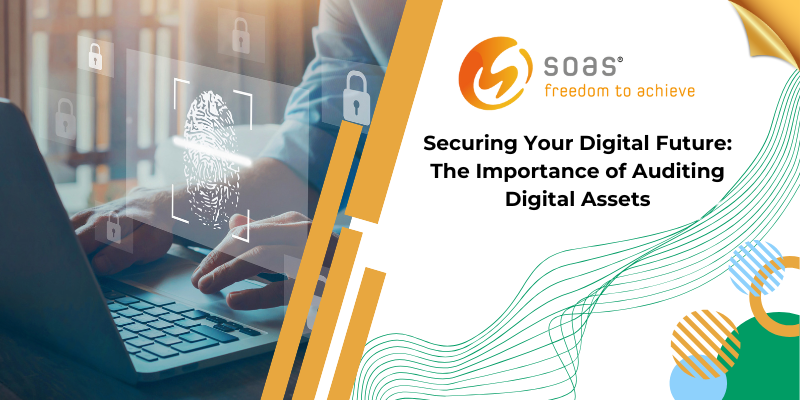Securing Your Digital Future: The Importance of Auditing Digital Assets

What is a Company Constitution?
A Company Constitution is a legal document that governs the internal operations of a company. It provides a framework for the company’s structure, management, and processes. This document replaced the Memorandum and Articles of Association (M&AA) after amendments to Singapore’s Companies Act in 2015.
The constitution is essential for ensuring clarity and accountability among the company’s stakeholders. It helps prevent disputes and outlines the procedures for resolving conflicts when they arise.
Key Components of a Company Constitution
A well-drafted Company Constitution typically includes the following:
- Company Name and Registered Address
- Specifies the legal name and the registered office of the business.
- Object Clause
- Defines the scope of business activities the company is authorized to undertake.
- Shareholders’ Rights and Liabilities
- Outlines the rights of shareholders, including voting rights, dividend distribution, and procedures for transferring shares.
- Governance Structure
- Specifies the roles and responsibilities of directors, the company secretary, and other officers.
- Rules for Meetings
- Covers the conduct of Annual General Meetings (AGMs) and Extraordinary General Meetings (EGMs).
- Capital Structure
- Details the share capital, including the types and classes of shares issued.
- Amendment Procedures
- Explains the process for altering the constitution, usually requiring a special resolution passed by at least 75% of shareholders.
Importance of the Company Constitution
- Compliance with Legal Requirements
- All companies in Singapore are mandated to have a constitution under the Companies Act.
- Clarity and Accountability
- Provides a clear understanding of the company’s operations, reducing misunderstandings and disputes.
- Stakeholder Protection
- Safeguards the interests of shareholders, directors, and employees by clearly defining their rights and responsibilities.
- Business Continuity
- Outlines procedures for handling crises, such as disputes, insolvency, or changes in management.
Customization vs. Adopting the Model Constitution
In Singapore, companies have the option to adopt the Model Constitution provided by the Companies Act. While this is a quick and cost-effective option, it may not cater to the unique needs of all businesses.
Model Constitution:
- Best suited for small and medium-sized enterprises (SMEs) with straightforward operations.
- Includes standard provisions that are legally compliant.
Customized Constitution:
- Ideal for businesses with complex structures or unique operational needs.
- Can include specific clauses tailored to your industry, operations, or shareholder agreements.
Amending the Company Constitution
Businesses evolve, and so should their governing documents. To amend the constitution:
- Draft the Proposed Amendments
- Ensure the changes comply with Singapore’s legal framework.
- Pass a Special Resolution
- Conduct a general meeting where at least 75% of shareholders agree to the amendments.
- Submit to ACRA
- File the amended constitution along with the resolution via BizFile+ within 14 days.
Failure to adhere to these steps may result in penalties or non-compliance issues.
Why Choose SOAS for Your Business Needs?
Navigating the legal and administrative complexities of the Company Constitution can be daunting. This is where SOAS shines as your trusted corporate service provider in Singapore.
With 16+ years of experience and a track record of successfully incorporating over 500 companies, SOAS provides end-to-end services for your business.
Key Services Offered by SOAS:
- Company Incorporation
- Hassle-free business registration with ACRA.
- Guidance on drafting a constitution that aligns with legal requirements and business goals.
- Corporate Secretarial Services
- Assistance with compliance milestones and document submissions to ACRA.
- Managing AGMs, EGMs, and other statutory obligations.
- Accounting and Bookkeeping
- Affordable accounting solutions to keep your finances in order.
- Tax Services
- Expert assistance with tax filings, GST registration, and tax planning
FAQs About Auditing of Digital Assets
Q. What are digital assets?
Digital assets are non-physical resources that hold value and exist in digital form. Examples include cryptocurrencies like Bitcoin, non-fungible tokens (NFTs), digital contracts, proprietary software, and structured or unstructured data.
Q. What are the key challenges in auditing digital assets?
Some challenges include:
- Valuation complexity: Fluctuating values of cryptocurrencies.
- Ownership verification: Identifying and verifying ownership via blockchain and wallets.
- Security concerns: Ensuring secure handling of sensitive data like encryption keys.
- Lack of standardization: Absence of globally accepted auditing frameworks for digital assets.
Q. How can organizations streamline the auditing process?
Organizations can streamline digital asset auditing by:
- Using blockchain explorers and crypto auditing tools.
- Collaborating with digital asset auditing experts.
- Establishing internal controls for access and transaction approvals.
- Conducting real-time monitoring of transactions.
- Enhancing cybersecurity measures to prevent breaches.
Q. What role does SOAS play in auditing digital assets?
SOAS offers a comprehensive range of services to help businesses audit digital assets effectively. These include expert audits, accounting and bookkeeping, regulatory compliance assistance, cybersecurity assessments, and strategic advisory tailored to digital asset management.
Q. How can I learn more about digital asset auditing services from SOAS?
Visit the SOAS website at https://soas.com.sg/ to explore services, request consultations, and learn more about how SOAS can support your business.
Wrapping Up
As the digital economy continues to expand, businesses must adapt to new challenges associated with digital assets. By adopting robust auditing practices and leveraging expert assistance, organizations can secure their digital assets, comply with regulations, and maintain stakeholder confidence.
Whether you’re dealing with cryptocurrencies, NFTs, or proprietary software, SOAS offers the expertise and tools to simplify and enhance your digital asset auditing process. Let us help you turn digital complexity into clarity. Explore our services here.
